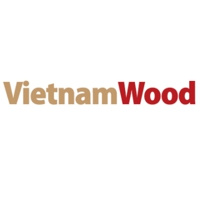
Dona durian over the past 20 years has not dropped in price because it always ensures quality. Photo: Thanh Son.
According to a foreign study, the global durian market in 2018 has a size of 17.6 billion USD and is forecast to reach over 28 billion USD in 2025.
Thus, it can be seen that the world durian market is thriving when this fruit is dubbed the "king of fruits" in many East Asian and Southeast Asian markets.
China is the world's largest durian import market, with a growth rate of 16% per year. In the first 11 months of 2021, China imported over 800,000 tons of durian, worth more than $4.1 billion.
Located right next to such a large market, but due to not being officially exported, Vietnamese durian is still inferior to Thai and Malaysian durian in China.
Mr. Nguyen Phu Cuong, Director of Dona - Techno Biotechnology Development Joint Stock Company, said that Thailand and Malaysia developed durian about 20 years before us.
20 years ago, Thailand has officially exported durian to dozens of countries, but we have only been licensed to export fresh durian officially to China.
Therefore, China opens the market for Vietnamese durian, which is both a good opportunity but also a great challenge for durian businesses and exporters, and local durian farmers.
According to Mr. Cuong, in order to compete with Thai and Malaysian durian in the Chinese market, Vietnamese durian must have a solid foundation. To build that foundation, durian must first be standardized in terms of quality.

Dona -Techno's model durian garden. Photo: Thanh Son.
Currently, durian farmers still have the habit of creating large and heavy durian fruits, thinking that it will be more profitable to sell to traders. However, durians that are too big and heavy are many fibers, the skin is too thick, the sweetness is low, and there is little aroma...
Meanwhile, durian farmers in Thailand and Malaysia, if they see any fruit too much, they will cut it off and destroy it according to the principle that any fruit that does not meet the requirements in terms of size and quality is not left on the tree. Also not for sale. They only sell durians that meet quality standards.
Therefore, Mr. Cuong said that the Ministry of Science and Technology and the Ministry of Agriculture and Rural Development need to study, develop and issue a set of standards for durian. In addition, it is necessary to develop a standard farming process to ensure that durian fruit is uniform in shape, stable in quality, and meets food safety criteria.
Mr. Cuong affirmed that if Vietnamese durian growers know how to love themselves, and only produce and sell durians of good quality, Vietnamese durians can completely compete in the Chinese market and market. other markets as well.
Dona-Techno has set the standard for the enterprise's Dona durian. Accordingly, the standard Dona durian fruit weighs from 2.5-4 kg. Thanks to its high and stable quality, over the past 20 years, Dona durian has never dropped in price. Dona - Techno has registered the Dona durian trademark in many markets and so far has been accepted by 6 markets: the US, China, India, Korea, Japan and the Middle East.






.png)